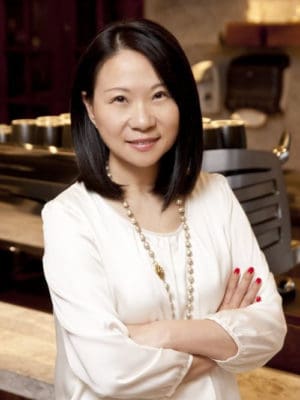
For new CEO Kevin Johnson, Starbucks’ prospects in China are even more exciting than a good cup of coffee
Starbucks is buying out its East China joint venture for around $1.3 billion in the company’s biggest acquisition ever, as growth shows signs of cooling in the American coffee chain’s home market. The cash deal will give the Seattle-based company sole ownership of 1,300 coffee shops in the region, including Shanghai and neighboring Jiangsu and Zhejiang provinces, completing Starbucks’ takeover of its entire mainland China business.
Through the move, Starbucks is stepping up its focus on China, the brand’s fastest-growing market outside the US, with the $85 billion coffeehouse chain aiming to grow its empire of 2,800 cafés in mainland China to 5,000 by 2021.
Starbucks Is Doubling Down on East China
Starbucks will assume 100 percent ownership of its East China business by buying the remaining 50 percent stake it did not yet own from its Taiwanese joint venture partners, Uni-President Enterprises Corp and President Chain Store Corp (PCSC), the company said in a statement. Food and beverage manufacturing giant Uni-President is the parent company of PCSC, the largest convenience store operator in Taiwan.
Separately, Starbucks is also selling a 50 percent interest in its Taiwan operations to Uni-President and PCSC, which founded the east China joint venture with Starbucks in 1997, for about $175 million. The sale of the 410-store venture in Taiwan echoes the US chain’s decision to fully license its Hong Kong and Macao operations in 2011.
Starbucks now has full ownership of its mainland China operations, concluding a series of moves to buy out its JV partners in various regions of the country. Previously, Starbucks acquired 100 percent of its business in South, Central and Western China from Hong Kong-based Maxim’s Caterers Ltd in 2011, and bought a 90 percent interest in Beijing Mei Da Coffee, its partner in North China in 2006.
East China is a key strategic region for the global coffee chain. Shanghai has nearly 600 Starbucks outlets, the most of any city in the world. The mainland financial hub will also be home to the company’s first overseas Roastery store, a 2,700 square metre venue showcasing the coffee-making process, in the new HKRI Taikoo Hui project on West Nanjing Road.

Belinda Wong, CEO of Starbucks China, oversees a chain of 2,300 coffeehouses
“Unifying the Starbucks business under a full company-operated structure in China, reinforces our commitment to the market and is a firm demonstration of our confidence in the current local leadership,” commented new Starbucks CEO Kevin Johnson, who succeeded co-founder Howard Schultz this past April, in the company statement.
Starbucks China CEO Belinda Wong will oversee the newly integrated business. Wong had previously served as president of Starbucks China, in which role she helped drive the company’s growth from 400 stores in 2011 to a footprint of over 2,300, before being named chief executive last October.
Global Growth Slows, but China Is Still Thirsty for Coffee
The announcement of the China move came on the same day that Starbucks posted same-store sales growth of 4 percent for the previous quarter, marking the third quarter in a row of weaker-than-expected growth at its 25,000 worldwide stores. The company is facing special challenges in the US, where sales growth is decelerating and Starbucks said it plans to sell the struggling Teavana chain of 379 stores that it bought in 2012.
In China, where Starbucks has a presence in 130 cities, the company saw strong same-store sales growth of 7 percent last quarter. The Asia-Pacific region, with 7,183 cafes, generated $223.8 million in operating income during the quarter, compared to the Americas region with 16,302 stores contributing $974.8 million.
As Starbucks may be approaching a saturation point in many global markets, Johnson is under more pressure to ramp up growth in China, which his predecessor said could eventually become a bigger market than the US. Johnson told an interviewer that “Starbucks’ opportunity for growth in China is unparalleled… and we are just getting started.”
Leave a Reply